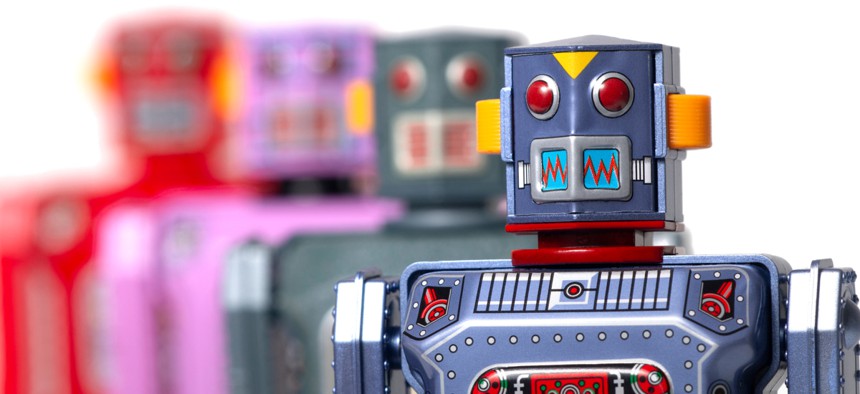GSA Offers More Details on Artificial Intelligence Center of Excellence

Mauro Rodrigues/Shutterstock.com
Officials will build on their work with the Pentagon’s Joint Artificial Intelligence Center to help other agencies adopt the tech, and the Health and Human Services Department could be next.
The General Services Administration is making artificial intelligence the sixth pillar of its Centers of Excellence program, and agency leaders are already teasing a few of their potential areas of focus.
The new AI center will be rooted in GSA’s work with the Pentagon’s Joint Artificial Intelligence Center, which last month became the fifth government organization to participate in the CoE initiative. After helping the JAIC accelerate its development of AI technologies and increase the Pentagon’s adoption of those tools, GSA officials see the opportunity to reapply that work to help the rest of the government reap the benefits of the emerging tech.
“We can learn from [the JAIC partnership] … and frankly, we can reuse all that foundation for our existing agencies and agencies outside the Department of Defense,” Anil Cheriyan, head of GSA’s Technology Transformation Service, said Tuesday during the agency’s IT Modernization Showcase. “The need for artificial intelligence is growing and significant across federal government.”
“The five [Centers of Excellence] are great, but now we think it’s time to add a sixth,” he added.
The CoE program, launched in 2017 to help agencies upgrade their outdated IT ecosystems, initially focused on five key areas: customer experience, contact centers, data analytics, data center modernization and cloud adoption. By standing up a new center focused on AI, GSA officials intend to help agencies further streamline their internal operations and make more data-driven decisions.
And officials are already scoping out a handful of areas where investment in the tech could yield immediate rewards.
During his speech, Cheriyan discussed the potential for artificial intelligence to improve the way the government uncovers tax and Social Security fraud, provides loans to students and farmers, and sifts through the enormous troves of data generated by the internet of things.
Cheriyan also alluded to a potential partnership with the Health and Human Services Department, saying he was meeting with agency officials on Tuesday to discuss how AI could improve their internal operations. HHS is already making significant investments in artificial intelligence and automation tools, and it’s also making a big push to standardize and open its data repositories, which is critical for broader AI adoption.
Still, the government faces a number of obstacles to AI adoption, both technical and cultural, said Matt Rose, the GSA’s site lead for the JAIC CoE. Agencies’ limited use of data standards and cloud services could limit their ability to roll out new AI applications, and federal leaders’ risk-averse approach to tech might also discourage people from experimenting with new AI tools, he said.
Still, “AI is an achievable goal,” he said, and the Centers of Excellence program can help agencies get there.
“That’s what we’re here for,” he said. “We can help you knock down some of these barriers.”






